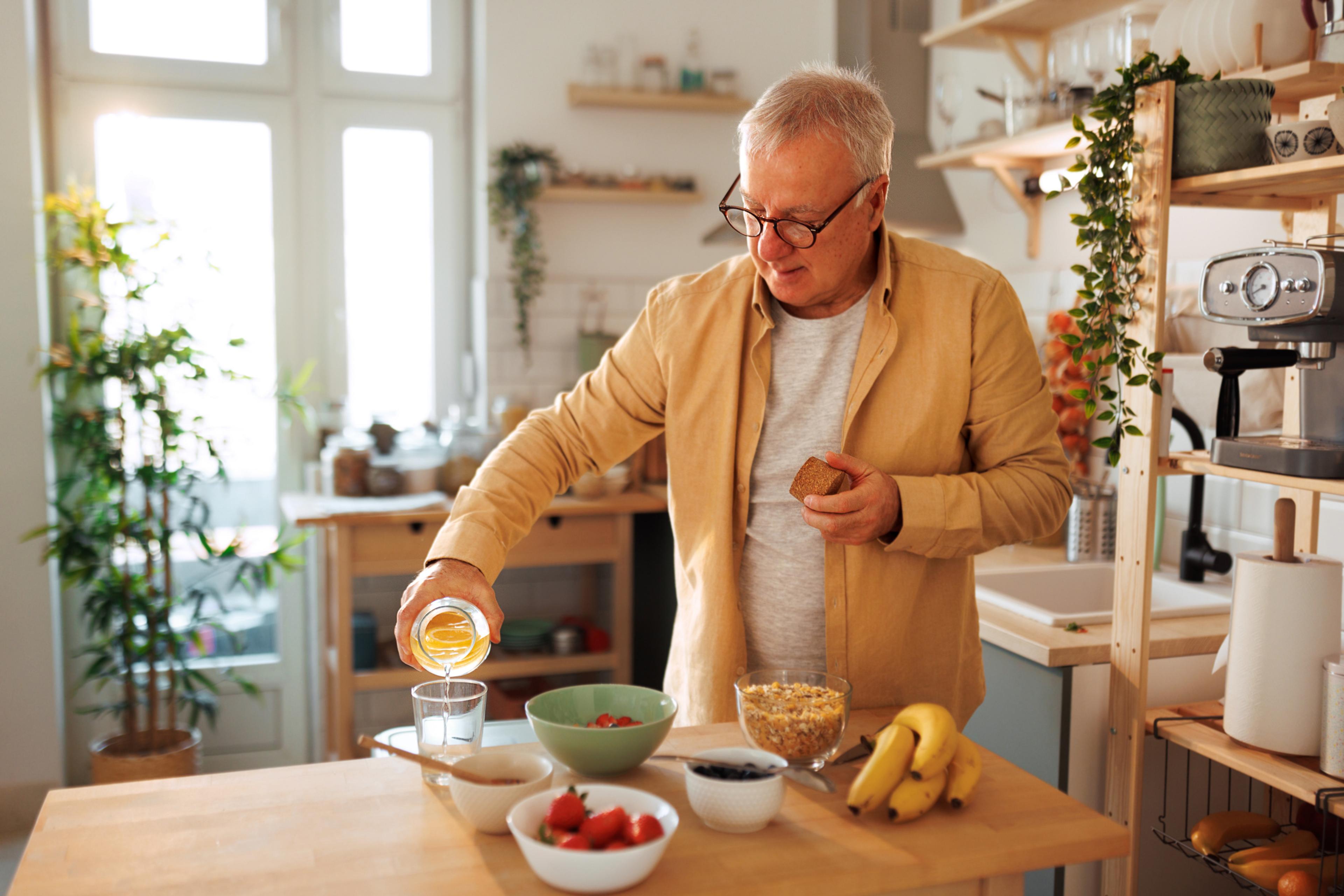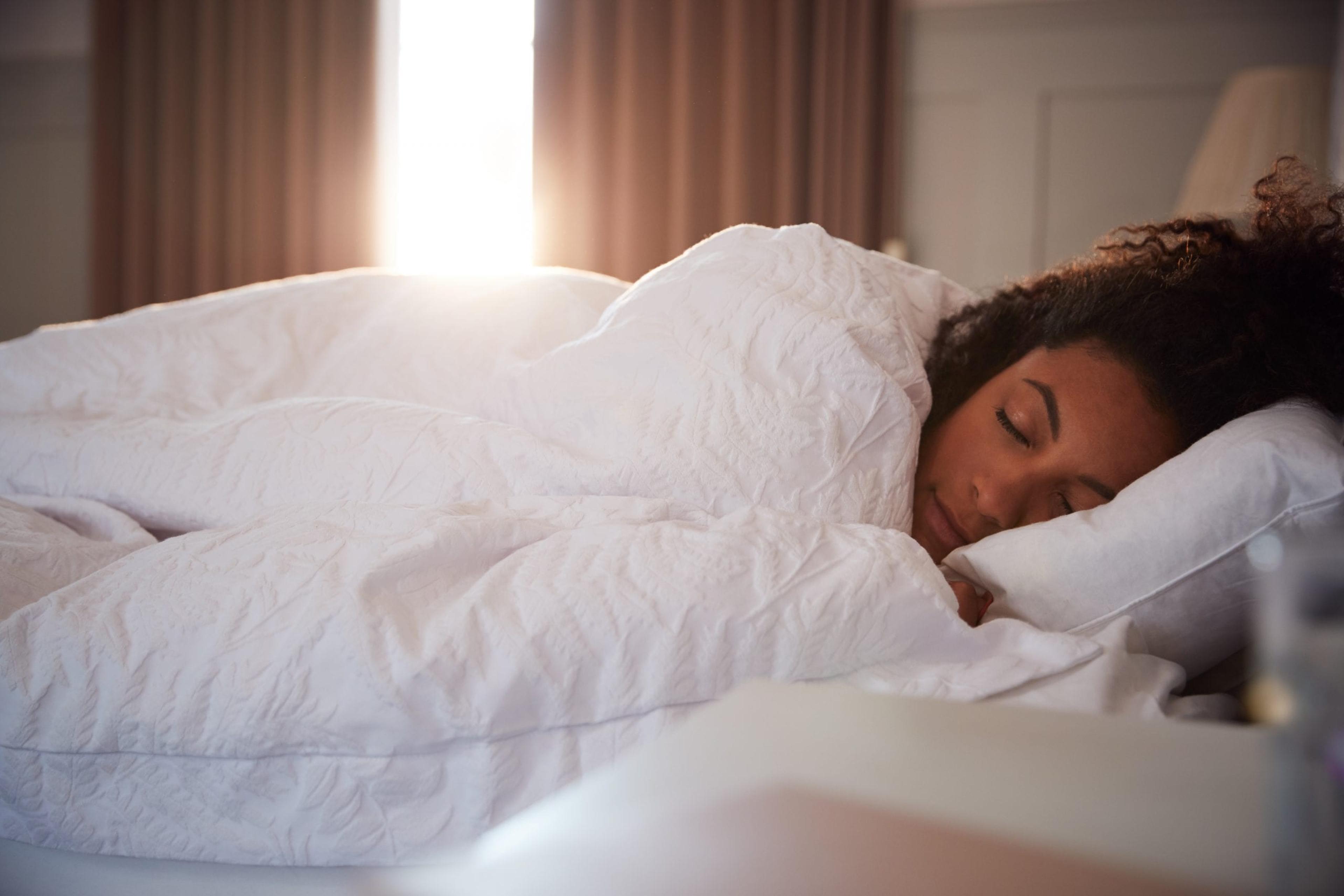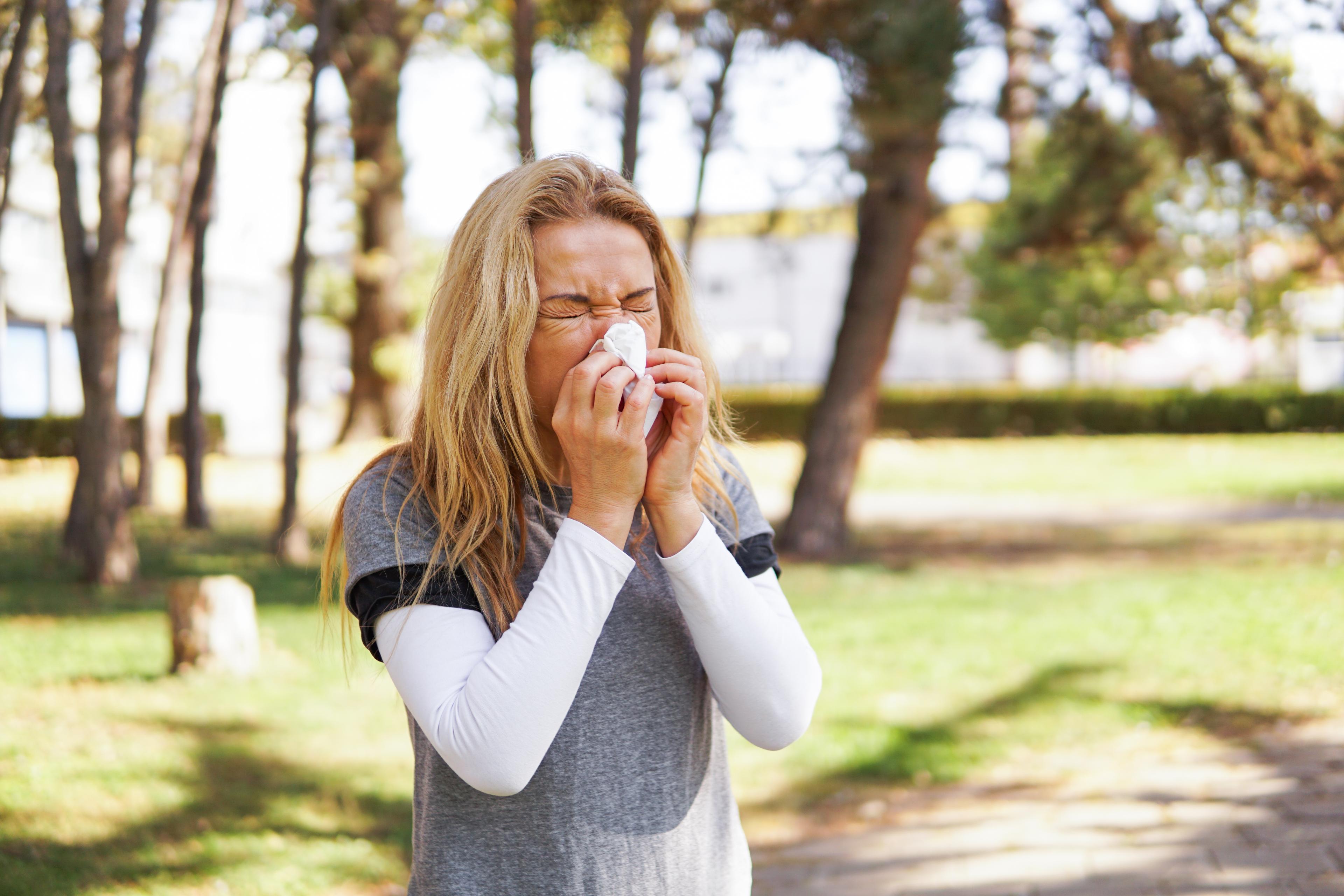Your Guide to Healthy Aging

Jake Newby
| 5 min read
Jake Newby is a brand journalist for Blue Cross Blue...

Key Takeaways
- Engaging in a healthy lifestyle can not only help you live longer, but it can also increase your quality of life.
- Eating a healthy diet, prioritizing sleep and attending regular preventive care visits are some of the cornerstones of healthy aging.
- Remember that your mental and physical health work together. When you address one, the other tends to improve as well.
When you are young, you can eat unhealthy food, get minimal sleep and rarely exercise, and still function at a reasonably high level. Older adults, who are more prone to disease and chronic conditions, don’t have this luxury. Engaging in a healthy lifestyle can not only help you live longer, but it can also increase your quality of life.
Here are six areas older adults should focus on to promote healthy aging and prolonged independence.
Commit to regular exercise
Staying fit reduces age-related health risks. While some people may work out for aesthetic reasons, exercise for older adults is key to improving everyday functionality.
Examples of everyday functions include lifting your grandchild, dragging your garden hose through the yard and carrying a laundry basket full of clothes up the stairs. The more you prioritize exercise, the longer you can perform these tasks without pain or resistance.
All adults over 65 are encouraged to get at least 150 minutes of exercise every week at a moderate intensity. However, before starting a new routine, it’s important to check with your primary care provider (PCP) to ensure proper instruction and guidance. They may advise you to:
- Adapt exercises or physical activities to better suit you
- Maintain your level of exercise or physical activity
- Start a new exercise routine
Click here for a list of functional movements to consider incorporating into your workout regimen, such as squats, lunges, pushes, pulls and more.
Eat a healthy diet
A good diet can prevent or stave off certain diseases and health conditions such as osteoporosis, high blood pressure, heart disease, Type 2 diabetes and some cancers. Eat a diet full of foods that are nutrient-dense and low in calories, such as:
- Beans, nuts, and seeds
- Fat-free or low-fat dairy products, or dairy substitutes with added calcium and vitamin D
- Fruits and vegetables
- Hydrating foods such as cucumbers and watermelon
- Whole grains like oatmeal, whole-wheat bread, and brown rice
- Seafood, lean meats and poultry, eggs and egg whites
Avoid foods and beverages packed with empty calories – like candy, baked goods, potato chips, soda and alcohol – and limit processed foods, saturated and trans fats.
Finally, make a habit of drinking plenty of liquids throughout the day to avoid dehydration. Some people experience diminished thirst as they age, according to the Cleveland Clinic, as the body doesn’t demand water like it once did. If you get bored drinking nothing but water, mix it up by cutting low- or zero-calorie juices with water and drinking decaffeinated coffee.
Prioritize sleep
Older adults spend less time in each sleep stage, according to the National Institute on Aging (NIA), which states sleep tends to be shorter and lighter and older adults may wake up more often during the night. Older adults are also more likely to take medications and have medical conditions that affect their sleep. Combat this by practicing good sleep hygiene, which includes:
- Avoiding watching television and engaging in screen time one to two hours before bed.
- Exercising during the day to regulate energy levels.
- Creating a dark, cool sleeping environment in which your blinds and curtains are shut, the temperature is between 60- and 67-degrees Fahrenheit and your bedroom is free of unwanted noise. You can also try wearing a sleep mask or earplugs.
- Keeping the same sleep schedule, even on weekends.
Talk to your PCP if you have trouble sleeping, to rule out the development of a sleep disorder. Insomnia is the most common sleep problem in adults age 60 and older.
Keep up with regular health care visits and screenings
Annual preventive visits and health screenings can help identify health problems before they become serious. Preventive visits are a great time to discuss issues that you may not get the opportunity to discuss at other appointments, such as:
- Cognitive impairment, such as forgetfulness, difficulty making decisions, trouble concentrating, confusion, brain fog and irritability.
- Depression
- Exercise and physical activity
- Fall risk
- Urinary incontinence
In addition to the continuation of screenings recommended during your younger years, health screenings and vaccinations adults need once they turn 60 include:
- Bone density testing
- The RSV vaccine
- The pneumococcal vaccine,
Nurture your mental health
Focusing on mental health is integral to aging well. As we age, we experience life events that may impact our mental health, including:
- Coping with a serious illness
- Loneliness and social isolation
- Retirement
- The feelings of grief associated with losing friends, family members and pets
It’s important to remember that your mental and physical health work together. When you address one, the other tends to improve as well. Increasing or maintaining your level of physical activity to benefit your mental health in addition to your physical health is one example.
Be mindful of participating in social and family activities when possible and try to stay productive throughout the day. You should also be honest about how you’re feeling when meeting with your PCP. If you’re experiencing higher levels of stress and anxiety, or you’ve felt depressed more often than normal, you may be referred to a mental health professional.
Work with your PCP to combat common health-related problems, like falls and incontinence
Falls prevention and urinary incontinence treatment should be top-of-mind for all older adults. As mentioned, you can discuss these topics during annual preventive visits.
The U.S. Centers for Disease Control and Prevention (CDC) reports that approximately 36 million older Americans experience a fall each year, and one out of five falls cause serious injury. Fortunately, your PCP can help reduce your chances of a preventable fall. They may recommend:
- Engaging in physical activity or physical therapy to build your strength and balance
- Reviewing your current prescriptions and supplements that may cause dizziness and fatigue
- Reducing possible household hazards, such as loose cords and detached rugs that could lead to a trip-and-fall accident
Meanwhile, incontinence is a quality-of-life issue. It often leads to limiting activities, declining social invitations, avoiding travel and even avoiding exercise. Short and long-term options may include:
- Bladder training exercises
- Medication
- Surgery, depending on severity
Blue Cross and the Blue Care Network are committed to helping you age well and maintain your independence. Visit bcbsm.com/agehealthy to learn more about the topics discussed here and other aspects of healthy aging.
Related reading:
Photo credit: Getty Images





